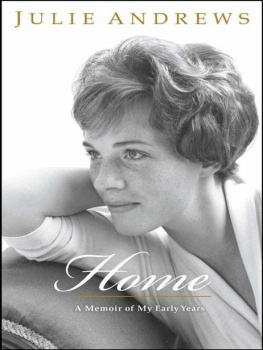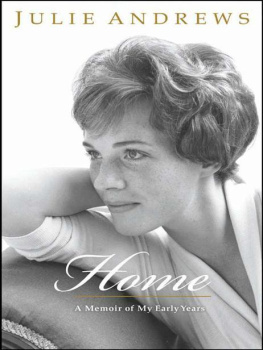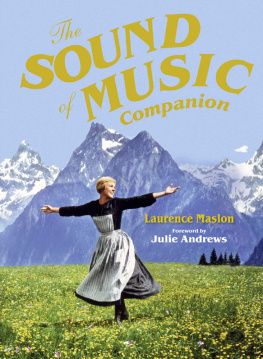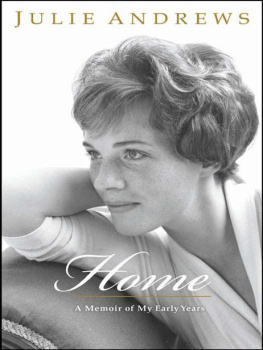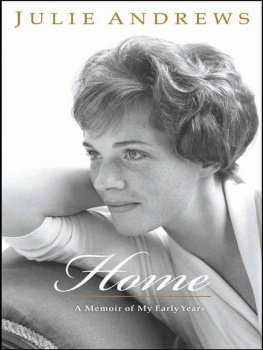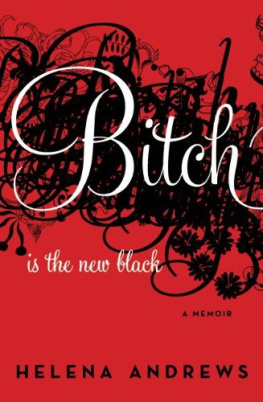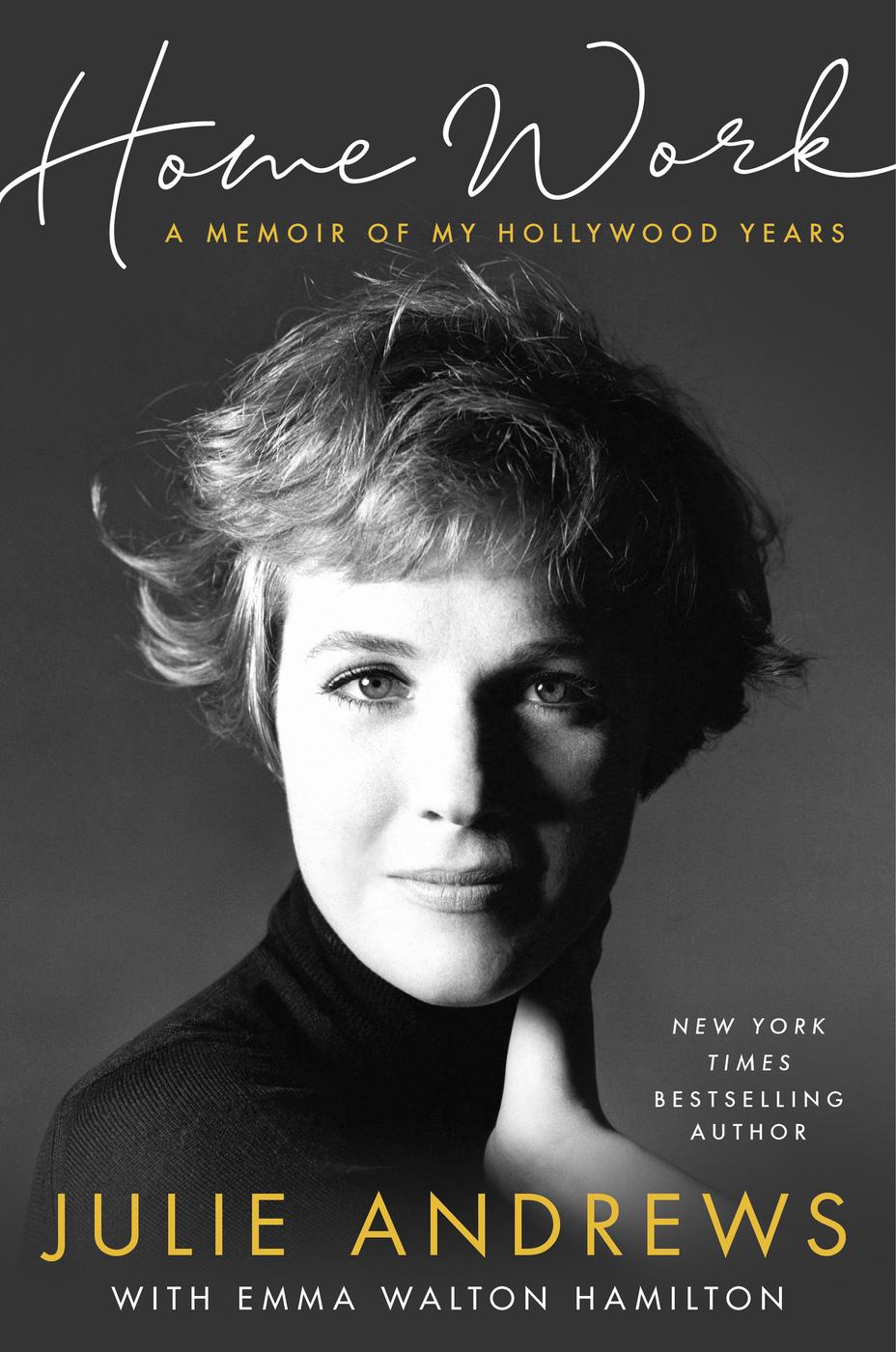
Copyright 2019 by Lacebark Entertainment, Inc.
Cover design by Amanda Kain
Front-of-jacket photograph Bert Stern/Getty Images
Back-of-jacket photograph Zo Dominic
Cover copyright 2019 by Hachette Book Group, Inc.
Hachette Book Group supports the right to free expression and the value of copyright. The purpose of copyright is to encourage writers and artists to produce the creative works that enrich our culture.
The scanning, uploading, and distribution of this book without permission is a theft of the authors intellectual property. If you would like permission to use material from the book (other than for review purposes), please contact permissions@hbgusa.com. Thank you for your support of the authors rights.
Hachette Books
Hachette Book Group
1290 Avenue of the Americas
New York, NY 10104
hachettebookgroup.com
twitter.com/hachettebooks
Instagram.com/HachetteBooks
First Edition: October 2019
Hachette Books is a division of Hachette Book Group, Inc.
The Hachette Books name and logo are trademarks of Hachette Book Group, Inc.
The publisher is not responsible for websites (or their content) that are not owned by the publisher.
The Hachette Speakers Bureau provides a wide range of authors for speaking events. To find out more, go to www.hachettespeakersbureau.com or call (866) 376-6591.
Print book interior design by Tom Louie.
Library of Congress Control Number: 2019947243
ISBNs: 978-0-316-34925-3 (hardcover), 978-0-316-34923-9 (ebook)
E3-20190912-DA-NF-ORI
For my grandchildren, with love.
Explore book giveaways, sneak peeks, deals, and more.
Tap here to learn more.

I know that I amall that I am.
And all that I am
is full and ripe.
All that I am is standing still,
waiting and watching
and bursting with life.
Holding the straining seams of my skin,
my passion and wit
and my sanity in.
Waiting for someone
to soothe and to say
I understand. Youre home.
Julie Andrews, 1978
I N MY FIRST MEMOIR, entitled Home, I wrote about my youth, growing up during World War II, and my experiences performing in vaudeville from ages ten to eighteen and on Broadway in my early twenties. I wanted to share what it was like in those days; living through the Blitz, touring endlessly around England, singing in the old music halls, trying desperately to learn my craft and feel at home, in spite of my transience. Only when I became moderately successful on Broadway did I dare to trust that Id never have to go back to the bleak existence of those early days.
In this new memoir, I describe my years working in Hollywood, beginning with the filming of Mary Poppins. For those who did not read my first book, or who might like a reminder of what led to this next chapter in my life, I offer the following recap:
I WAS BORN in Walton-on-Thames, a small suburban village in the county of Surrey, just eighteen miles southwest of London. My mothers father was a coal miner, and her mother was a chambermaid. My mother, Barbara Morris, was just eighteen when her parents died within a year of each other. Her aspirations to become a classical pianist were cut short by the fact that she was now the primary caregiver to her thirteen-year-old sister, Joan. It wasnt long before the girls met my father, Ted Wells, an impoverished teacher. He fell madly in love with my red-haired, vivacious mother, and offered stability for both sisters, despite his economic status. When my parents married, they moved with my aunt to a small cottage, which they called Threesome. My mother gave piano lessons, and my aunt taught dance, to augment my fathers wages.
My father was the familys rock. My brother, John, was born two years after me, and Dad showed us the wonders of naturetrees, seasons, wildlife. Dad adored rivers and lakes, and often took us rowing on the Thames. He wasnt physically demonstrative, but there was never any doubt as to his love for and dedication to us.
In the summer of 1939, when I was not quite four years old, my mother was playing at a series of concerts in a coastal town. She provided piano accompaniment to a Canadian tenor by the name of Ted Andrews. They began to tour together, and just before the start of World War II, my mother left my father and moved with Ted Andrews to London. Shortly thereafter, she sent for me to come and live with them, while Johnny remained with our dad.
The time in London was a radical awakening for me. The city was filthy with soot and gray with fog, and I was unsettled by this new man in my mothers life. He was large, loud, and volatile, and as ill at ease with me as I was with him. My basement room in our apartment was hot and sterile, with bars on the windows. At night, rats ran across the exposed pipes. Air-raid sirens wailed often, and we were required to employ blackout curtains and keep all lights off after dark. Bombing raids became a regular occurrence, and we were frequently forced to retreat to the Underground subway stations for shelter.
After my mother moved away, my aunt Joan married her boyfriend, Bill Wilby. Because of the war effort, my dad had been assigned to work in a converted factory, making parts for Spitfire aircraftand there he met a young widow named Winifred. By this time, Mum was pregnant with my half brother, Donald, and not long thereafter, she married Ted Andrews and Dad married Win. Mum and Ted decided that my name should be changed from Julia Wells to Julie Andrews, and that I should call my new stepfather Pop, presumably to make us feel more like a family.
In the spring of 1943, Mum, Pop, Donald, and I moved out of London to a suburban part of Kent. Pop began giving me singing lessonsperhaps in an attempt to bond with his new stepdaughter, perhaps to give me something to do, since my school had shut down briefly due to the escalation of the war. I disliked these lessons intensely. I was shy and embarrassed, but Mum and Pop were surprised to discover that I had a strong soprano voice, quite unique for my age.
Our new home in Kent had an air-raid shelter in the garden, and as the war continued, we often spent nights out there. By mid-1944, the Germans were sending doodlebugs to England. These were pilotless flying bombs that came across the English Channel, cut out over their target, and plummeted to earth. I could tell the difference between the sound of these doodlebugs approaching and our own fighter planes. The air-raid sirens became so constant that they prevented families from accomplishing the most basic of tasksmaking dinner, doing the laundry. My mother came up with the idea that I should sit on top of the air-raid shelter with a pair of opera glasses and a whistle. Whenever I heard a doodlebug approaching, I would blow the whistle, giving my mother (and, as it turned out, many other neighborhood homemakers) time to finish a chore before running to take shelter. I was on duty in all weathers. One rainy day, I rebelled, and stayed in the house. After the bomb dropped, several neighbors came to the door, demanding, Why the hell didnt she blow her whistle?
My dad, Win, and Johnny moved to Chessington, about an hour away from us. I visited when I could, which was not often. Returning home from those visits was always emotionally painful.
By age nine and a half, my singing voice had improved so much that I began taking lessons with Pops voice teacher, Madame Lilian Stiles-Allen. Madame, an esteemed dramatic soprano, was short and stout, with a kindly nature. She was a phenomenal teacher, with whom I studied for many years. She provided me with a solid technical foundation that carried me through the decades that followed.


